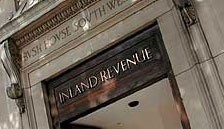The HMRC online portal allowing businesses to register employees for Government’s Coronavirus Job Retention Scheme (CRJS) is set to feel the strain when applications flood-in following its launch today (April 20).
Around nine million UK employees are expected to be registered on the CRJS system as around 2.3 million businesses seek the support which will offer members of their workforce up to 80% of their monthly wage, up to a limit of £2,500.
ASE chairman, Mike Jones, said that he foresaw issues for the online system as employers rush to access the cash, which the HMRC has said will take between four and six working days to process.
Jones said: “Everyone will want the cash in time for this month’s payroll”.
HMRC chief executive Jim Harra has said that HMRC’s servers have been tested to handle 450,000 claims an hour, and a total of 5,500 staff set to man a JRS helpline.
Last week Government published clarification of further details of its JRS scheme regarding the re-engagement of staff who had recently left the business or been made redundant.
- The latest guidance on CJRS can be found on GOV.UK by searching for 'Coronavirus Job Retention Scheme'.
Following Government’s mid-March announcement of CRJS employees from the motor trade launched a campaign urging clarification of whether “regular commission payments” could be included in the calculation of the 80% of an employee’s monthly wage (up to a £2,500 cap) that would be covered by the scheme.
Calls for more lucid description of the scheme’s guidelines were boosted by the National Franchised Dealers Association (NFDA) and a change.org petition set-up by the Independent Motor Retailers Association (IMDA), which attracted more than 27,000 signatures.
HMRC later confirmed that employers should calculate the commission payment that can be included in CRJS grant repayments using the same month’s earning from the previous year or average monthly earnings for the 2019-2020 tax year, according to Lawgistics.
The motor trade legal consultancy gained clarification of the guidelines yesterday to bring an end to confusion surrounding what retailers would be able to reclaim from the JRS scheme.
CRJS fraud alegations
Employers have been told that any business found to be abusing CRJS by putting “furloughed” staff to work would not be eligible to reclaim their employees’ wages.
AM reported earlier this month on allegations that, as many car retail businesses were poised to take advantage of the scheme in a bid to safeguard their business during the current COVID-19 coronavirus lockdown, others with furloughed staff were attempting to exploit the scheme.
Ian Ferguson, the founder of car retail dispute resolution business RejectMyCar.com, uncovered evidence that the JRS scheme was being abused by some car retail groups whose furloughed staff have continued to work in direct contravention of the scheme’s rules.
Taking to LinkedIn, Ferguson said: “I’ve had a number of emails from staff at dealer groups saying they were furloughed, but then told separately to answer, deal with, take deposits and order bank deals after lockdown.”
Ferguson urged employees being asked to work while furloughed to get in touch with him, allowing him to alert the appropriate authorities through anonymised testimony.
He added: “This is taxpayer money, meant to help struggling businesses, not to shore-up over-indebted gin palace dealer groups.”
Tax authorities have set up a hotline for workers to whistle blow and Harra said in an interview this week that any firm caught abusing the system “would not be entitled to the furlough payments”.
Job risk remains
Insight gained from respondents to AM’s COVID-19 impact survey found that the CRJS may not be sufficient support for many car retail operations to survive the current health ctisi unscathed.
One-in-two UK car retailers fear they will be forced to make redundancies before the end of 2020 as a result of the impact of the COVID-19 coronavirus outbreak, according to the survey's responses.
In total 52.8% of 467 respondents to AM’s survey – conducted between March 25 and April 3 – said they could foresee redundancies in their business as a result of the impact of COVID-19.
However, just over a quarter (26.6%) asserted all their employees would keep their jobs during 2020.















Login to comment
Comments
No comments have been made yet.